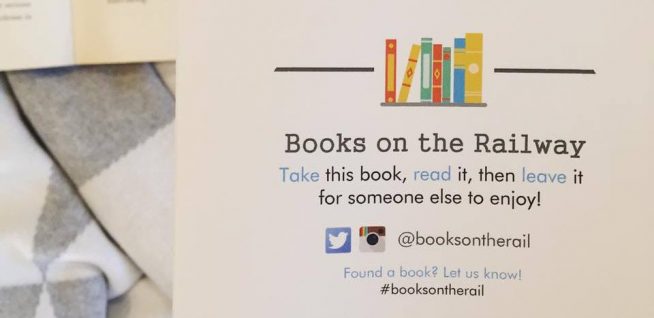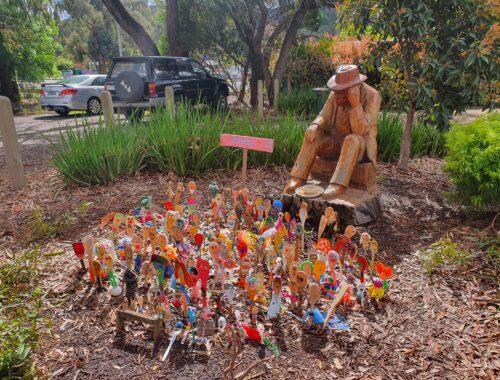
Upheaval: Disrupted lives in journalism
Recently I finished reading Upheaval: Disrupted lives in journalism – an utterly compelling account of the transition from traditional print to digital media through 2012 and beyond.
As soon as I heard about this book, I knew I had to read it. Other than living through the current pandemic, the shift from print to digital media is possibly the most seismic change I’ve lived through as a writer.
Print to digital media
It is interesting now, ten years later, to look back at that time. I have been writing here (perhaps ironically) about the transition from print to digital media ever since.
As someone who emerged and graduated in 2012 just as this was all coming about, this book hit me straight in the heart – capturing that gut-punch felt by so many writers, editors and journalists at the time.
All my life I’d grown up reading the news, imagining seeing my name in print and getting to help tell the stories. To arrive in 2012 just as I was graduating, and seeing the industry fall apart the way it did, was absolutely devastating. If I can’t do this, then who am I? What am I supposed to do?
As I wrote here in June 2012 (actually the month I started this blog), ‘If all these people, who have been in the industry for years, are being pushed out, then what hope do I have of finding a way in?’
It’d just been announced that month that Fairfax and News Limited would be axing up to 1,900 jobs each (and then again in 2014) – and that the editors of The Age and the Sydney Morning Herald would be stepping down.
The age-old question: if news was suddenly free to read online, and readers no longer had to buy print copies, then how does your newspaper continue to function? Where does your money come from? And how do you pay your writers and editors, who are required to put the thing together?
Later that year I sat in on the New News session at the Melbourne Writers Festival, and no-one could answer the question. Over the years, there have been all sorts of trials and experiments with things like paywalls, but to this day there is still no clear solution to the problem.
The book
Edited by journalists Andrew Dodd and Matthew Ricketson, Upheaval takes us inside the newsroom as journalists recount what it was like to work, then be made redundant, during those times.
It looks at the culture of journalism before the days of the internet – the whirring printing press and the frenetic clacking of typewriter keys. My stomach dropped the moment I read the opening line: ‘Once The Age required an entire building. Now everything fits on one floor.’
There are personal accounts from journalists as they described what it was like to be a writer – to have that calling. I could instantly see myself in their stories – what it is like to get excited by a story, to see your name in print. How writing is so much a part of yourself – I don’t know who I am without a pen in hand.
They then speak about what it was like to have to constantly adapt and reinvent yourself, trying to keep up with the changes – only to receive that awful news: there is no place for you here, no place for what you do. It is an emotionally gripping account – and will speak to so many writers and editors in the industry.
Cut to almost ten years later
Ten years later, I am now a freelance editor – finally paid to do what I love most, and full-time. It has taken a lot of twists and turns along the way to get here.
Earlier this month I was sitting in on a Virtual Editors Workshop held by Busybird Publishing, along with other freelance editors and student editors looking to make their way in the industry. One expressed their anxiety at being able to find work in the current climate – and instantly I thought back to myself, daunted, depressed and trying to navigate the industry in 2012 all those years ago.
I raised my hand, and explained that there is no better time than now to be graduating, as there is so much demand for what we do.
For all the negative ways COVID-19 has transformed our lives, one silver lining to come out of all this has been the huge surge in businesses realising that they must have an online presence in order to survive, and successfully be able to communicate what they do to their customers. This means a HUGE influx/ necessity for online content – which ALL needs to be written and edited.
It is now easier than ever to live and work as a freelance writer or editor – especially as more businesses realise how easy and economical it is to have your staff work remotely or from home.
News is also chugging out a constant cycle of stories to keep us informed on all things COVID – with a very real impact on our day-to-day decision-making. Suddenly, when there was no place for us ten years ago, writers and editors are needed now more than ever.
I addressed this student editor as though I were reaching back through the years and speaking to myself. Good things are coming.
The key is patience – hanging in there and keeping faith. Everything ebbs and flows, eventually comes full circle.
If you’re a writer, reader, editor or journalist, I can’t recommend reading this book highly enough. Definitely worth a look.

Finding joy in unexpected places
You May Also Like

Books on the Rail
September 1, 2016
Spoonville causes quite a stir
October 11, 2020
